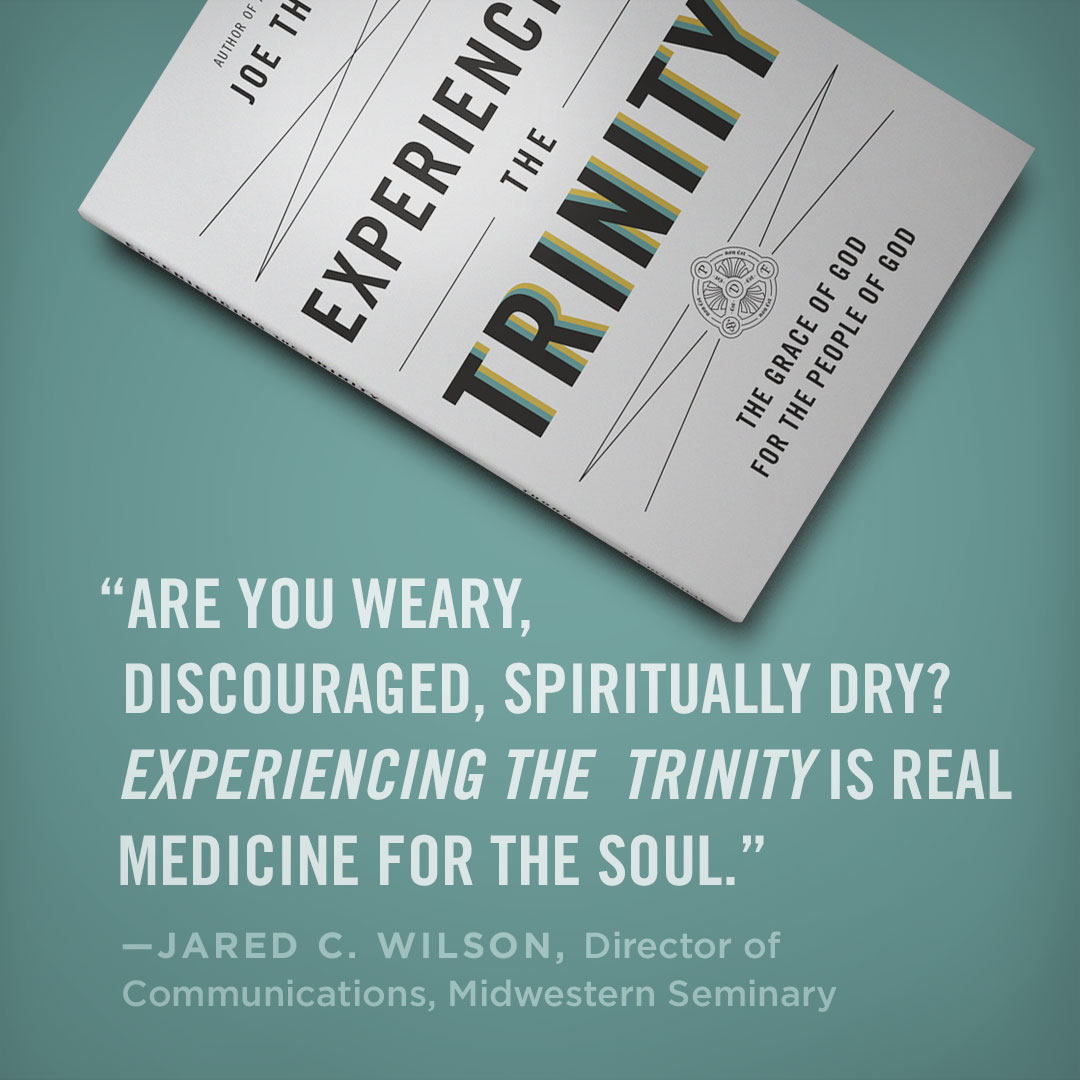A young man goes to Seminary bright-eyed and bushy-tailed. Having sensed God’s call to the ministry, he’s not only excited about preparing for future service but also about growing in grace and in the knowledge of the Lord Jesus Christ. He expects that the next 3-4 years are going to be some of the best in his life.
Fast forward a semester or two, or three, and the eyes are dull and the tail is sagging and dragging. The excitement has evaporated, as he forces himself into classes each day. He’s not only lost his enthusiasm for ministry, at times he’s lost hope for his own soul. Instead of growing in grace and knowledge he feels his soul shrinking and even backsliding. Sadly, it’s an all-too-common scenario for many (most?) seminary students.
Following the pattern of David in Psalm 42v11, I want to ask “Why are you so sad?” Then I want to ask, “Why is this important?” and last, I want to ask “What can we do to recover joy in seminary?”
Why are you so sad?
Before we can get out of sadness we need to figure out how we got into it. Here are the most common reasons:
1. Overwork: This is probably the most common cause and often the root of all the other causes. Sometimes over work is the professors’ fault. Sometimes it’s the student’s fault as he is perhaps aiming too high for his abilities or studying inefficiently due to internet distractions.
2. Lack of family time: Due to overwork, students lose contact with one of their greatest sources of joy – their wife and children. This causes guilt and resentment, and even alienation and conflict.
3. Lack of exercise: Our bodies were not designed to spend the majority of the time folded up in chairs. Exercise not only expels harmful chemicals, it also generates the production of happy chemicals.
4. Lack of sleep: Perhaps due to lack of exercise, our bodies refuse to sleep when we go to bed; they are just not tired enough. Or maybe we are choosing to burn the candle at both ends.
5. Lack of daylight: Long, cold, dull winters often causes SAD – seasonal affective disorder. Our bodies and minds thrive on bright light and fresh air.
6. Lack of money: This is a problem for every seminary student, but maybe especially hard for men who previously had successful careers and never lacked anything. It causes stress and strain on families, especially when students cannot give their kids what other kids are having.
7. Over-familiarity: The Word is no longer exciting but rather mundane and boring. The original languages that we thought would become doors into epic passages of Scripture have become burdens and obstacles to enjoyment of the Word.
8. Impatience: This especially sets in about a year before graduation when students feel they are ready to go and can’t wait to get started in ministry. Sometimes it feels like they are just spinning their wheels going over things they already know.
9. Critical spirit: All of these things mount up and produce a general negativity, discontent, and ingratitude, that darken all of life. Or it may be someone else’s negativity – your wife or maybe a couple of very negative fellow students that have infected you with their critical spirit.
10. Lack of devotion: Times of personal prayer, reading, worship are squeezed out; or the joy is squeezed out of them by all these other factors. We cannot thrive when we are depriving ourselves of spiritual fuel.
Why is this serious?
So, there are ten reasons why students may be feeling so sad, so down, so discouraged. But why is this serious? Why don’t we just accept this as an inevitable part of Seminary life and get on with it?
1. It damages our witness. What do visitors to seminaries see and sense as they walk through the halls and even sit in dull, lifeless, and lethargic classrooms? What do student families, especially their children, think about Christianity, based upon how their Dad comes home from the Seminary? What do the churches students are serving think of their seminaries when they see and hear their grim sermons?
2. It’s infectious. It doesn’t take more than a handful of negative and over-critical students to infect other students. Sadness is contagious.
3. It diminishes performance. In The Happiness Advantage, Harvard professor, Shawn Achor, presents scientific evidence to prove that although everyone thinks “If I succeed, I’ll be happy,” the truth is much more like, “If I’m happy, I’ll succeed.” He quotes study after study that demonstrates the personal and commercial advantages of happiness, and the damaging impact of sadness on performance.
4. It’s difficult to recover from. We may think, “Once I get out of seminary, I’ll decide to be happy again.” Sometimes it’s not that easy. With God all things are possible, but, like all habits, bad mental and emotional habits are not always easy to break.
5. It’s bad preparation for pastoral ministry. Although perhaps the pressures of pastoral ministry may not be so sustained over such a long period without a break, the pressures are often far more intense and with far greater consequences than getting a B instead of an A. By learning to rejoice in the midst of trials during seminary years, students develop a vital emotional muscle for even harder trials ahead.
6. It endangers your soul. Nehemiah said, “The joy of the Lord is your strength.” That word “strength” can also mean security. When we lose joy, we lose one of our great moral and spiritual defenses.
What can we do?
So, given the seriousness of sadness, what can students do to recover joy in Seminary? There may be one or two causes that we have no control over, but we can do something about most of them.
1. Admit the problem. Be as honest as the psalmist. Recall better days and compare and contrast with the present. Recognize and acknowledge the sadness. If you can’t see it, ask your wife if she can sense a decline.
2. Confess the sinful choices made. Some of the sadness may have been caused by wrong choices. Confess that you’ve aimed way too high and worked way too hard and the motive has not always been the glory of God. Confess undisciplined and distracted study through internet use that has unnecessarily extended study times. Confess the words of discontent and ingratitude that have brought you down, and others with you.
3. Challenge yourself and one another. When the Psalmist asked, “Why are you so sad?” it wasn’t so much a question seeking information, but a question to challenge and even rebuke himself. So challenge yourself, and call fellow-students to account as well. Refuse to be dragged down. Be an example, a leader, and an inspiration to others. Take responsibility to contribute to and cultivate a more joyful learning environment.
4. Work for joy. Joy usually doesn’t just land on our lap as a blank check. No, we have to work for it, we have to pursue it, and we have to use the means God has provided. Happiness is hard work. Part of that work is re-believing the Gospel, re-savoring the Gospel.
5. Seek accountability with your wife and children. Go home and lead your home back to joy. Confess your failure to lead your family emotionally and ask them to keep you accountable.
6. Accept lower grades for greater joy. Straight A’s with no joy, or regular B’s with great joy? That’s the choice some students have to face up to. Why not, even for a time, choose to increase spiritual joy even at the expense of reduced grades.
7. Exercise and sleep. The science is conclusive. Vigorous exercise at least three times a week and a minimum of 7-8 hours a night sleep put premium joy-fuel in the tank.
8. Plead for patience. You’re ready to go and yet you’ve still got three months or more until graduation. Again, why not use this time to exercise and build the muscle of patience. You’re going to need plenty of it in the ministry, so why not begin now.
9. Re-boot contentment and gratitude. Go home and tell your family about one positive thing that happened in Seminary today. Then find two things to be thankful for. Then three. Usually there are plenty but we’ve become so focused on the negatives that we’ve lost sight of the positives.
10. Hope in God. As the psalmist did, he re-focused and re-cast his soul upon God. Time in God’s presence puts a beautiful and healthy glow in his soul and on his face. And if your devotions have run into the sand, let me give you a tip: Don’t lengthen your personal devotions but change them. When we’re feeling spiritually cold, the temptation is often, “I need to pray longer or read my Bible longer.” But the answer is not to lengthen devotional time but rather to change it up.
Why not read a devotional commentary with your daily Bible reading. I often use Dr. Sproul’s commentaries in this way. Or why not listen to edifying spiritual songs as part of your devotions? Or why not pray through the student and faculty directory. Just freshen it up and you’ll often find your joy returning.
Conclusion
So, yes, you’re sad, and that’s a serious issue. But there are things you can do to change that. God has provided the means and promised to bless them:
“Why are you cast down, O my soul? And why are you disquieted within me? Hope in God; For I shall yet praise Him, The help of my countenance and my God.”



